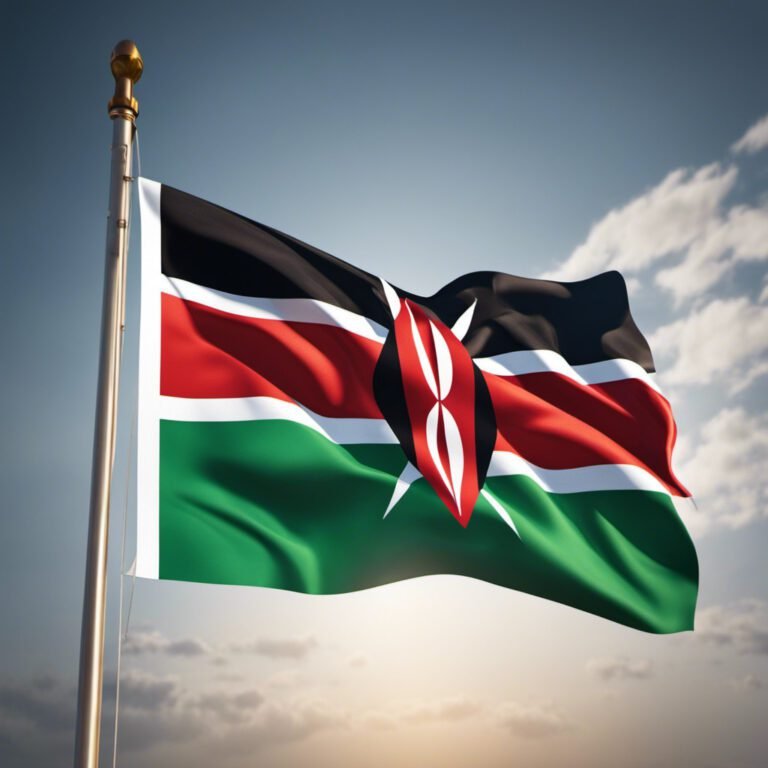Can You Participate In Community-based Ecotourism In Kenya?
Imagine a breathtaking journey filled with unforgettable encounters in the heart of Kenya’s vibrant communities. A unique opportunity awaits you to engage in community-based ecotourism, celebrating the rich biodiversity and cultural heritage of this awe-inspiring country. Embark on a transformative adventure that not only allows you to immerse yourself in the beauty of Kenya’s landscapes, but also actively supports local communities, fostering sustainable development and conservation efforts. Experience the magic of being a participant, as you contribute to the preservation of Kenya’s natural wonders, while forging meaningful connections and creating lasting memories. Discover how you can make a difference, one trip at a time, in the remarkable world of community-based ecotourism in Kenya.
What is community-based ecotourism?
Community-based ecotourism refers to a form of tourism that is focused on the sustainable development of local communities while promoting the conservation of natural resources and wildlife. It involves the active participation of the local community in tourism activities, ensuring that the benefits of tourism reach the people directly involved in its operations.
Definition
Community-based ecotourism can be defined as a type of tourism that is designed to benefit local communities economically, socially, and environmentally. It aims to preserve the natural and cultural heritage of a destination while providing visitors with an immersive and authentic travel experience.
Principles of community-based ecotourism
Community-based ecotourism is guided by several principles that are essential for its success. These principles include:
-
Community Involvement: The local community plays a central role in the planning, development, and management of ecotourism activities. Their opinions, knowledge, and needs are taken into consideration at all stages of the process.
-
Conservation and Sustainability: Community-based ecotourism prioritizes the protection of natural resources, wildlife, and ecosystems. It adopts sustainable practices to minimize the negative impact of tourism on the environment.
-
Cultural Sensitivity: The promotion and preservation of local culture and heritage are key elements of community-based ecotourism. Respect for the traditional ways of life, customs, and beliefs of the communities is essential.
-
Economic Benefits for Communities: The economic benefits generated by ecotourism activities are channeled back into the community, contributing to poverty alleviation and sustainable development.
The Importance of community-based ecotourism in Kenya
Kenya, with its diverse wildlife, breathtaking landscapes, and vibrant cultural heritage, has recognized the significance of community-based ecotourism. This approach has gained traction in the country due to its numerous benefits.
Preservation of natural resources
Community-based ecotourism plays a crucial role in the preservation of Kenya’s natural resources. By involving local communities in the management of protected areas, there is a greater sense of ownership and responsibility towards conservation efforts. The active participation of communities helps in reducing illegal activities such as poaching and deforestation, leading to the protection and regeneration of natural habitats.
Empowerment of local communities
One of the key advantages of community-based ecotourism is the empowerment of local communities. By engaging in tourism activities, communities are able to generate income, enhance their livelihoods, and improve their standards of living. This economic empowerment helps to reduce poverty and increase the resilience of communities in the face of socio-economic challenges.
Conservation of wildlife
Kenya is renowned for its rich wildlife and diverse ecosystems. Community-based ecotourism initiatives contribute significantly to the conservation of wildlife by encouraging sustainable practices and raising awareness about the importance of protecting endangered species. This involvement of local communities helps to create a sense of stewardship and responsibility for wildlife conservation.
Sustainable economic development
Community-based ecotourism provides a sustainable model for economic development in Kenya. By involving local communities in tourism activities, the revenue generated stays within the community, creating opportunities for entrepreneurship, job creation, and skill development. This, in turn, helps to reduce dependence on unsustainable practices such as agriculture or natural resource extraction.
Successful examples of community-based ecotourism in Kenya
Kenya is home to several successful community-based ecotourism initiatives that have made a significant impact on both the local communities and the conservation of natural resources. Some of these notable examples include:
Maasai Mara National Reserve
The Maasai Mara National Reserve is a prime example of community-based ecotourism in Kenya. The Maasai community, known for their rich cultural heritage and herding traditions, actively participates in tourism activities. They offer authentic cultural experiences, guided wildlife tours, and community-owned lodges for tourists to experience their way of life while supporting the local economy.
Amboseli National Park
Amboseli National Park is another successful example of community-based ecotourism. Here, the Maasai community has come together to form the Amboseli Community Trust, which manages the park in partnership with conservation organizations. The trust ensures that the benefits of tourism directly reach the local communities and supports various conservation projects in the area.
Lewa Wildlife Conservancy
Lewa Wildlife Conservancy, located in Northern Kenya, is a renowned community-owned wildlife conservancy. The conservancy works closely with local communities to promote sustainable tourism practices, generate income, and protect wildlife. Visitors can engage in activities such as game drives, guided walks, and visits to Maasai villages, all while contributing to conservation efforts.
Samburu National Reserve
Samburu National Reserve is a community-owned reserve managed by the Samburu people. Through the Samburu Conservation Trust, the local community has established a successful ecotourism model that supports their cultural preservation and wildlife conservation. Visitors can participate in cultural experiences, guided hikes, and wildlife viewing, while directly benefiting the Samburu community.
How to participate in community-based ecotourism in Kenya?
Participating in community-based ecotourism in Kenya is a wonderful opportunity to engage with local communities, experience authentic cultural encounters, contribute to conservation efforts, and support sustainable development. Here are some ways you can actively participate:
Choosing responsible tour operators
When planning your trip to Kenya, it is essential to select tour operators that prioritize community-based ecotourism. Look for operators who collaborate with local communities, support sustainable practices, and have a track record of making a positive impact.
Staying in community-owned lodges and camps
Instead of staying in commercial hotels, opt for community-owned lodges and camps. These accommodations are managed and owned by local communities, ensuring that the economic benefits stay within the community. By staying in these establishments, you directly contribute to the livelihoods of the local people.
Engaging in cultural experiences with local communities
Take the opportunity to engage in cultural experiences with local communities. Participate in traditional ceremonies, visit local villages, and interact with community members to gain insights into their way of life. This cultural exchange promotes mutual understanding and appreciation.
Supporting local craft and produce
When shopping for souvenirs, prioritize locally made crafts and products. By supporting local artisans and purchasing their handmade goods, you contribute to the local economy and help preserve traditional craftsmanship.
Volunteering and contributing to conservation efforts
Consider volunteering your time and skills to support community-based conservation projects in Kenya. Many organizations offer opportunities for volunteers to participate in initiatives such as wildlife monitoring, habitat restoration, and community outreach programs. Your contribution can make a lasting impact.
Challenges of community-based ecotourism in Kenya
While community-based ecotourism in Kenya has numerous benefits, it is not without its challenges. These challenges include:
Limited infrastructure
In many rural areas of Kenya, limited infrastructure poses a challenge for community-based ecotourism initiatives. Lack of proper roads, water supply, and electricity can affect the quality of tourism facilities and restrict the growth of tourism in these areas.
Lack of awareness and understanding
Community-based ecotourism requires awareness and understanding from both the local community and the tourists. Lack of awareness about sustainable practices, cultural sensitivity, and the importance of conservation can hinder the success of community-based initiatives.
Conflicts between communities and wildlife
Human-wildlife conflicts are a common challenge in Kenya, particularly in areas where communities live in close proximity to wildlife habitats. These conflicts can arise due to livestock predation, crop damage, and threats to human safety. Resolving these conflicts in a way that benefits both communities and wildlife is essential for the success of community-based ecotourism.
Poaching and illegal activities
Poaching and illegal activities such as bushmeat hunting and illegal logging pose a significant threat to wildlife and conservation efforts in Kenya. These activities not only endanger wildlife populations but also undermine the sustainable development of communities relying on ecotourism. Addressing these issues requires collaborative efforts between communities, government agencies, and conservation organizations.
Socio-economic disparities
Socio-economic disparities within communities can pose a challenge to community-based ecotourism. Unequal distribution of benefits and limited opportunities for marginalized community members can hinder the overall success and sustainability of ecotourism initiatives.
Initiatives to overcome challenges in community-based ecotourism
Efforts are being made in Kenya to overcome the challenges faced by community-based ecotourism initiatives. Some of these initiatives include:
Investment in infrastructure development
The development of infrastructure in rural areas is crucial for the growth of community-based ecotourism. Improving road networks, electricity, and water supply can enhance the overall tourism experience and attract more visitors.
Education and awareness campaigns
Creating awareness among communities and tourists about sustainable practices, cultural sensitivity, and the importance of conservation is essential. Education and awareness campaigns can help promote responsible tourism behavior and create a sense of ownership and pride among local communities.
Collaboration between communities and conservation organizations
Collaboration between local communities and conservation organizations is vital for the success of community-based ecotourism. By working together, communities can receive support in capacity building, business development, and conservation efforts.
Anti-poaching initiatives
To tackle the issue of poaching, anti-poaching initiatives are being implemented in collaboration with local communities and law enforcement agencies. These initiatives involve the training of community members as wildlife rangers and the establishment of anti-poaching patrols.
Economic empowerment programs
To address socio-economic disparities, various economic empowerment programs are being implemented. These programs include vocational training, access to credit facilities, and the establishment of community-owned enterprises. By addressing inequality, these programs promote the overall success and sustainability of community-based ecotourism.
Best time to visit Kenya for community-based ecotourism
The best time to visit Kenya for community-based ecotourism depends on several factors, including seasonal variations, wildlife migration patterns, and local events and festivals.
Seasonal variations
Kenya experiences two rainy seasons, known as the long rains and short rains. The long rains typically occur from March to May, while the short rains occur from October to December. To avoid heavy rainfall and disruptions in travel, it is recommended to plan your visit during the dry seasons, which are from January to February and July to September.
Wildlife migration patterns
Kenya is famous for the annual wildebeest migration, which occurs between the Maasai Mara National Reserve and the Serengeti National Park in Tanzania. The migration generally takes place from July to October, making this period an ideal time to witness this incredible natural phenomenon.
Local events and festivals
Kenya is known for its vibrant cultural events and festivals. Participating in these events can provide a unique insight into the local culture and traditions. Some popular festivals include the Lamu Cultural Festival, the Maasai Mara Cultural Festival, and the Turkana Festival. It is advisable to check the calendar of events to plan your visit accordingly.
What to expect from a community-based ecotourism experience
Participating in community-based ecotourism in Kenya offers a range of unique experiences that go beyond the typical tourist attractions. Here are some things you can expect from a community-based ecotourism experience:
Authentic cultural encounters
Community-based ecotourism provides opportunities to engage in authentic cultural encounters. You can interact with local communities, visit traditional villages, witness traditional ceremonies, and gain insights into the customs, traditions, and way of life of the people.
Sustainable and responsible tour activities
Community-based ecotourism emphasizes sustainable and responsible tour activities. These activities may include guided nature walks, wildlife viewing, bird watching, tree planting, and community-led conservation projects. By participating in these activities, you contribute to the preservation of natural resources and the livelihoods of local communities.
Close encounters with wildlife
Kenya is renowned for its diverse wildlife, and community-based ecotourism allows for close encounters with animals in their natural habitats. Whether it’s a game drive in a national park or a guided walk in a community conservancy, you can observe and appreciate the beauty of wildlife while contributing to its conservation.
Engagement with local conservation projects
Community-based ecotourism offers the opportunity to engage with local conservation projects. You can learn about ongoing initiatives, participate in habitat restoration, and contribute to wildlife monitoring efforts. This hands-on involvement enables you to make a direct impact on conservation while gaining a deeper understanding of the challenges faced.
Benefits of participating in community-based ecotourism in Kenya
Participating in community-based ecotourism in Kenya offers numerous benefits for both the visitors and the local communities. Some of these benefits include:
Positive impact on local communities
Participating in community-based ecotourism directly benefits local communities. By staying in community-owned lodges, purchasing local crafts, and engaging in cultural experiences, visitors contribute to the local economy, supporting sustainable livelihoods and poverty alleviation.
Preservation of biodiversity and natural resources
Community-based ecotourism plays a vital role in the preservation of biodiversity and natural resources in Kenya. By involving local communities in conservation efforts, habitat protection, and sustainable land management, the ecological integrity of natural areas is maintained.
Cultural exchange and understanding
Community-based ecotourism promotes cultural exchange and understanding between visitors and local communities. Through interactions and immersive experiences, visitors gain a deeper appreciation for local cultures, traditions, and ways of life. This exchange fosters mutual respect, breaks down cultural barriers, and promotes global understanding.
Personal fulfillment and enriched travel experiences
Participating in community-based ecotourism offers a sense of personal fulfillment and enriched travel experiences. The opportunity to connect with nature, contribute to conservation, and engage with local communities provides a deeper connection to the destination and a more meaningful travel experience.
Conclusion
The potential for community-based ecotourism in Kenya is vast. By actively participating in community-based ecotourism, visitors have the power to make a difference in the lives of local communities and contribute to the preservation of biodiversity and natural resources. By choosing community-based ecotourism, travelers can have an unforgettable and responsible travel experience that benefits both the destination and its people. So, pack your bags, embrace the spirit of adventure, and embark on a journey that will leave a positive impact and lasting memories.






